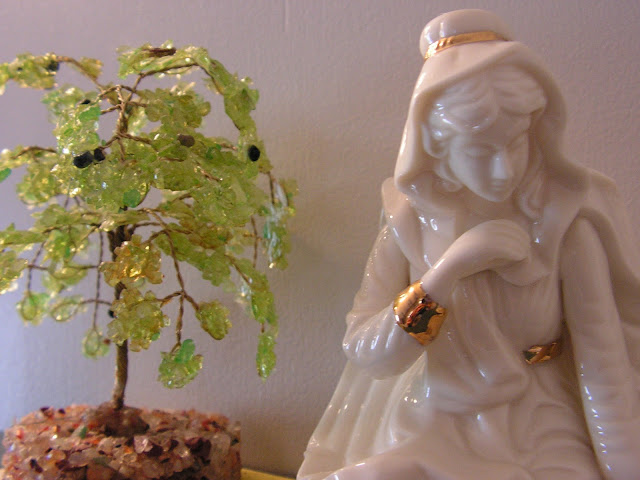Skip to main content
Something About Mary...
Today we celebrate the Feast of St Mary the Virgin. The collect for the day alludes to Mary’s having been taken up to God in some way: “O God, you have taken to yourself the blessed Virgin Mary, mother of your incarnate Son.” We don’t really know what that means, however. Roman Catholic doctrine describes this feast as the assumption of Mary into heaven, leaving open the question of whether this event occurred before or after an earthly death. In the Orthodox church, this feast is called the Dormition of the Theotokos - the falling asleep of the Mother of God. Falling asleep here is a euphemism for death. Orthodox tradition holds that Mary died, was resurrected on the third day, and taken into heaven, just like Jesus. We Anglicans, we of the middle way, simply celebrate the day as the Feast of St Mary the Virgin and make room for a variety of interpretations.
We have no record of what actually happened to Mary. She is last seen in the scriptures in the Book of Acts, in which she waits in the upper room along with the apostles for the coming of the Holy Spirit. Her end is a mystery; despite her importance in the story of Jesus, apparently none of the New Testament writers thought it necessary to relate what finally happened to her.
That lack of clarity has allowed many traditions to rise up about Mary, about who she was, who her parents were, what happened to her after Jesus’ resurrection, and what place she holds in the heavenly realm now. For some, she is the Queen of Heaven. For some she is the Mother of God. She is sometimes regarded as a mediator - Holy Mary, Mother of God, pray for us sinners, now and at the hour of our death. Some call her ever-virgin while others call her ever-blessed.
And Marian apparitions - appearances - have been reported all over the globe in every century, from Spain and Portugal to Italy; from England and France to Mexico; and even in a little town in Georgia about fifteen years ago. To some people, God is a little scary, and Jesus is way Holy, but Mary seems friendly and approachable. Not to mention beautiful. All the world loves Mary.
But even what is written about Mary is strange. In some ways, she simply serves as a symbol. She proves the humanity of Jesus, she is the “woman” Paul refers to when he writes to define Jesus as one who was born of a woman and under the law. Jesus himself called her “woman.” In the Gospel of John she is never named but always referred to simply as the mother of Jesus.
In other ways, very complicated and intricate doctrine has sprung up from her place in the story. The Church Council at Ephesus in the year 431 was called to settle a great fight about whether she should be called the Mother of God or not. Mother of Jesus, or even the Christ Bearer, was one thing, but to be the Mother of God was another. In the end, though, Mother of God won by a landslide. All the world loved Mary then, too.
But whatever we think about Mary, we are meant to remember that she points to Jesus. She draws no attention to herself, ever. At Cana, where she prodded Jesus to fix the problem of a lack of wine at a wedding, she tells everyone to simply do whatever Jesus tells them to do. Listen to him, she says. Whatever he says to you, do it.
The mystery of Mary remains mystery. But her message is clear. Listen to Jesus, she says, and whatever he says to you, do it.

Comments
I did attempt to engage in Christianity within the framework of the Episcoalian Church as to me ... This is the most " Christ like" of current organized religions